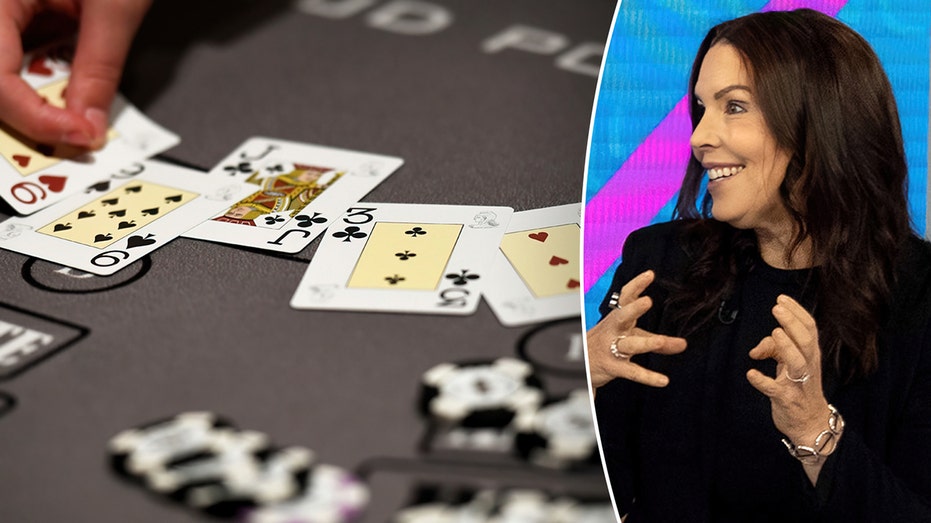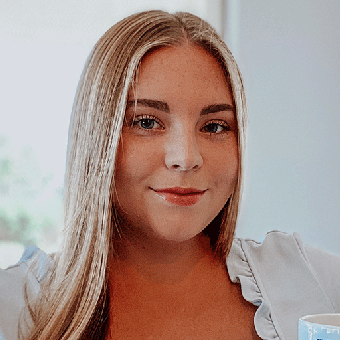Poker pro Annie Duke warns against small losses leading to 'terrible decisions'
All investing decisions are ‘bets against ourselves,’ the former world poker champ says
Annie Duke's lessons from poker: Don't let small losses lead to terrible decisions
Former professional poker player Annie Duke discusses the behavior of decision-making on 'Making Money.'
With adrenaline pumping and your money on the line, sometimes brash decisions aren’t always profitable ones.
Author and former U.S. professional poker player Annie Duke noted close comparisons between smart bets on the table – as well as the stock market – in a special townhall episode of "Making Money with Charles Payne" Thursday.
"The problem that poker is, is that you don't know what other people's cards are and there's a lot of luck involved, like on the turn of the card. So in that sense, when we think about betting at poker, we're investing our money in a particular decision that we think is going to have the best outcome," Duke told Payne.
"So we can take that away from the poker table and say that's really what we're doing with all of our decision-making," she continued. "So when I say that all decisions are bets against ourselves, we can think about any different outcome that might happen as some different version of ourselves that might occur in the future."
M.G.M. CYBERATTACK CONTINUES TO CREATE CHAOS FOR VEGAS OPERATIONS; S.E.C. NOTIFIED
Duke, who "fell in love" with poker at age 18 thanks to her brother, worked her first job at Kentucky Fried Chicken before attending Columbia University where she pursued a double major in English and philosophy. She then earned her Ph.D. from the University of Pennsylvania in cognitive linguistics.

Author and former poker player Annie Duke advised not getting "caught up in momentary ups and downs" on "Making Money with Charles Payne" Thursday, October 19, 2023. (Getty Images)
Though she thought she’d stick with higher education and become a professor, a chronic illness prevented Duke from doing so, so she turned to poker to make some money. By the time she retired in 2021, Duke earned a World Series of Poker champion bracelet and was the only woman to win the Tournament of Champions.
Poker players and investors both devote resources, time, attention, money and effort into their winnings, Duke noted, while emphasizing the importance of envisioning long-term impacts.
"We get really caught up in losses in the moment that make us make terrible decisions when we're losing. Our decision-making really goes kind of off the rails. So what we need to try to do as decisionmakers is to not get caught up in the momentary ups and downs, but to start to think about the long view," she encouraged.
Her best Wall Street example? Berkshire Hathaway’s daily stock volatility.
Evander Holyfield reveals how overcoming loss made him world champion
'Making Money' host Charles Payne speaks to five-time heavyweight world champion Evander Holyfield about his methods for success.
"If you look at it from the long view over the whole course of the existence of Berkshire Hathaway, obviously it has vastly outperformed the S&P 500. And it's a stock that you would want to own," Duke explained. "So one of the things that we need to do to be more intelligent investors is to stop getting caught up in the momentary ups and downs and to start thinking about what is good in the long run so that we can make better decisions that are going to benefit our future selves."
Amidst social media and financial advice noise, Duke further warned against the cons of instant information and getting caught up in immediate market "ups and downs."
"To help ourselves to be better at this is to start planning ahead," the poker pro advised. "Instead of trying to make a decision in the moment that some investment shoots up or in the moment that some investment shoots down, we need to think in advance as we make the investment about what the conditions are under which we might invest more, under which we might actually choose to divest, [or] to take risk off."
GET FOX BUSINESS ON THE GO BY CLICKING HERE
Investor puts all chips on one casino stock
'The Bubba Show' host Todd Horwitz says the casino industry has learned to make money in every department, not just gambling on 'The Claman Countdown.'
She argued that the more we can pre-commit to decisions of the future, "the better off we’re going to be."
"One of the simplest examples of that is to set stop losses and take gains and actually stick to those," Duke said, "because then we're not making the decision about whether to stop the loss when we're actually in the moment of losing."























